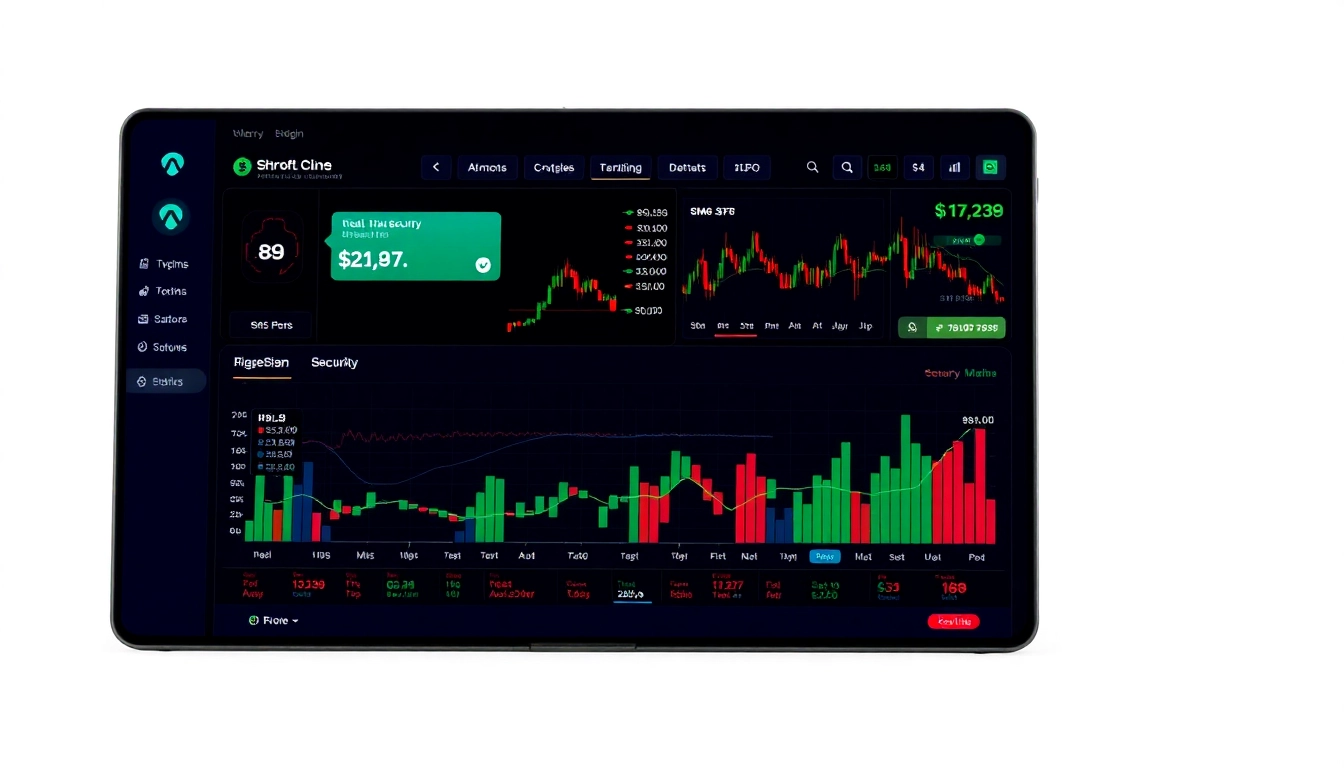Current State of the UK Rental Market and Landlord Property News
The UK rental property sector continues to evolve amid a complex mix of regulatory changes, economic pressures, and shifting market dynamics. Recent Landlord Property News highlights a landscape marked by both challenges and opportunities for investors and existing landlords. Staying informed on these developments is essential for strategic portfolio management in 2025.
1.1 Recent changes and updates impacting landlords
Among the most impactful recent changes are amendments to tax policies and new regulations designed to curb profit erosion. For example, introduced measures such as the phased reduction of mortgage interest tax relief have notably affected landlord profitability. Furthermore, new restrictions on lease terms and increased licensing requirements in certain regions have added compliance burdens. Despite these, the rental market remains resilient, supported by persistent demand from tenants, especially in urban centers.
1.2 Impact of new regulations and taxes on rental earnings
Tax reforms aimed at increasing revenue—such as potential hikes in stamp duty, changes to wear-and-tear allowances, and proposals for higher capital gains taxes—pose significant considerations for landlords. These reforms could reduce net rental income or the attractiveness of long-term holding. However, they also incentivize landlords to adopt more sophisticated financial planning and diversification strategies to mitigate increased fiscal pressures. Analyzing historical outcomes of similar policies reveals that adaptive measures, including mortgage restructuring and diversification into niche markets like student housing, can offset some of these impacts.
1.3 Analysis of landlord property news headlines and their implications
Headlines such as “Major lenders pull sub-4% home loans” and “Mortgage options declined in August” underscore the shifting credit environment. These developments directly influence landlords’ borrowing capacity, constraining refinancing options and capital expenditure plans. Conversely, news indicating rising transaction volumes and house prices—like the 4% increase in July transactions and a 7.7% annual property price rise—signify sustained demand. Collectively, these signals suggest a resilient rental market but necessitate cautious financial planning, especially in environments of tightening credit and regulatory uncertainty.
2. Investment Mortgage Rates and Their Effect on Landlord Portfolios
Understanding mortgage rate trends is crucial for landlords aiming to optimize financing strategies. The effective interest rate on new mortgages has declined for five consecutive months, reaching 4.28%, indicating a temporary easing in borrowing costs. However, the landscape remains unpredictable, with some major lenders withdrawing sub-4% loans amid wider economic tightening. For investors, these rate fluctuations influence decisions around refinancing, acquiring new properties, or consolidating existing debt, affecting overall rental yields and long-term profitability.
2.1 Trends in mortgage rates and borrowing costs for landlords
Mortgage borrowing costs for landlords have experienced a notable decline. This can be attributed partly to the Bank of England’s rate cuts and market expectations of a stabilizing inflation environment. Nonetheless, the variability in product offerings and lender appetites—highlighted by the recent drop in product choice—means that landlords must remain vigilant in sourcing competitive rates. It is advisable to explore fixed-rate deals, such as the 46% of borrowers who opted for two-year fixed products, to lock in rates amidst ongoing volatility.
2.2 How mortgage rate fluctuations influence rental property investments
Lower mortgage rates can boost rental yields by reducing borrowing expenses, making property investments more attractive. Conversely, rising rates or restricted access to affordable credit could hamper acquisition plans and elevate financing costs. For existing portfolios, rate fluctuations influence decisions on remortgaging—particularly as short-term deals continue to dominate, with a surge in remortgage completions. Strategic refinancing at favorable rates can significantly improve net income and facilitate portfolio expansion.
2.3 Strategic refinancing options for landlords in a changing rate environment
Landlords should consider various refinancing strategies, including switching from variable to fixed-rate mortgages to ensure payment stability. Tapping into niche lending options for rejected applicants—highlighted in reports that 34% of rejected mortgage applicants were not referred to specialist lenders—can also open new avenues. Furthermore, exploring longer fixed deals, such as five-year products, may offer bulk protection against interest rate rises and smooth cash flow management, thus safeguarding long-term investment performance.
3. UK Housing Prices and Future Predictions Based on Landlord Property News
Recent data reveal that average house prices have increased by 7.7% annually, gaining approximately £16,000 in the past year. Projections for 2025 suggest a modest 3% increase, driven by ongoing supply shortages and investor interest. For landlords, understanding these trends is vital for timing acquisitions and evaluating profit margins. Rising prices can enhance capital appreciation but may also temper rental yields if rental growth doesn’t keep pace, emphasizing the importance of strategic purchase timing.
3.1 Recent data on house price growth and projections for 2025
The property market continues its upward trajectory, with a 1.3% increase in prices recorded in the year to July, despite summer dips. Experts highlight that illicit fund inflows, averaging an extra £3,000 in property values nationwide, fuel this growth. Forecasts indicate that although the pace of price increases may slow, steady appreciation of around 3% in 2025 remains likely, reinforced by persistent housing shortages and demand-supply imbalances.
3.2 Effects of house price trends on buy-to-let investments
Price appreciation benefits landlords through increased equity, potentially enabling refinancing or capital-raising for further investments. However, high purchase prices coupled with uncertain rental growth pose risks of diminished yields. Additionally, rising property values combined with tighter regulations and taxation—such as proposed tax reform—that could erode profit margins, necessitate meticulous investment planning and potential focus on areas with high rental demand and resilient markets like student housing or prime urban locations.
3.3 Market predictions: Risks and opportunities for landlords
While the outlook appears cautiously optimistic, risks include market corrections in vulnerable metropolitan areas and the impact of upcoming policy changes. Opportunities lie in leveraging market resilience—such as the booming student accommodation sector highlighted by Morgan Stanley—and investing in properties with high rental demand. Adaptive strategies, including diversification and pragmatic financing, will be key to capitalizing on ongoing price growth without overexposing portfolios to potential downturns.
4. Regulatory and Taxation Changes in Landlord Property News
UK policymakers are actively exploring reforms that will shape the future of property investment. Recent proposals to implement new taxes—potentially impacting capital gains or stamp duty—are under scrutiny, with industry voices warning of their adverse effects on long-term investment viability.
4.1 Upcoming tax reforms affecting rental income and property ownership
Tax reforms such as increased stamp duty on buy-to-let properties and adjustments to capital gains tax are expected to impact profitability. Conversely, some reforms aim to promote transparency and combat money laundering, which, as reports suggest, may inadvertently inflate property prices. From a strategic perspective, landlords need to stay ahead of these reforms by consulting tax advisors and considering alternative structures—like limited companies—to optimize tax efficiency.
4.2 Policy shifts and their impact on landlord profitability
Policy shifts—such as potential rent controls or stricter licensing—can directly reduce rental income or elevate compliance costs. These factors may lead to a reassessment of investment strategies, favoring properties with high-yield potential or in markets less affected by regulatory burdens.
4.3 How to adapt investment strategies to changing regulations
In response, landlords should diversify portfolios, embrace technology for compliance management, and explore emerging markets or niche sectors. Building flexibility into financing arrangements, such as access to specialist lending options for rejected applicants, can mitigate regulatory risks. Moreover, adopting a long-term horizon aligned with anticipated policy developments ensures resilience and sustained profitability.
5. Practical Tips and Best Practices for Landlords in 2025
Success in the current environment hinges on strategic decision-making, cost management, and proactive portfolio optimization. Here are some practical tips:
- Navigate mortgage options: Prioritize fixed-rate deals and explore specialist lenders to secure favorable financing terms, especially as product choices decline globally.
- Manage risks: Employ sound due diligence on regulatory changes and market conditions, and consider insuring against void periods or tenant default.
- Leverage landlord property news: Regularly monitor industry updates to identify emerging opportunities—such as student housing—as resilient assets in uncertain times.
5.1 Navigating mortgage options and securing favorable rates
Given the decline in mortgage product options, it is crucial to consult experienced brokers and explore fixed-term products that offer rate certainty. Early refinancing and adjusting debt structures should be part of a proactive strategy to maximize cash flow and investor confidence.
5.2 Managing risk amid property market fluctuations
Diversification remains vital. Investing in different regions or property types—such as student or commercial accommodation—can buffer against regional downturns. Additionally, maintaining a healthy cash reserve enhances flexibility in turbulent market conditions.
5.3 Leveraging landlord property news for strategic decision-making
Staying engaged with industry reports and headlines provides insights into potential market shifts. For example, recognizing the resilience of student housing allows landlords to target high-demand sectors, while awareness of regulatory changes enables preemptive adjustments to investment plans.



